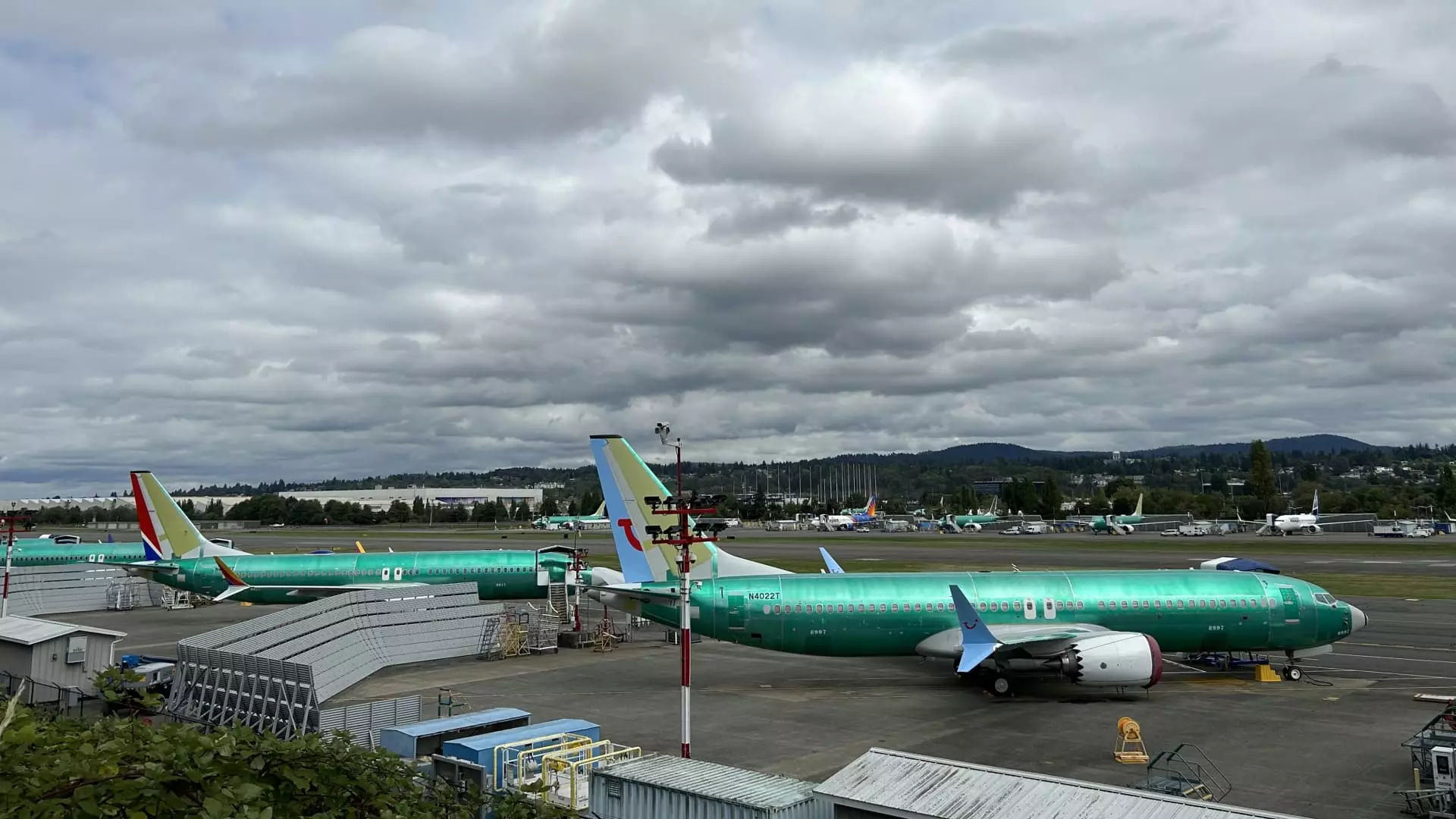In 2024, Boeing faced a daunting year marked by significant operational challenges. The company’s delivery figures plummeted to 348 airplanes, reflecting a stark decrease of approximately one-third compared to the previous year. This decline can be attributed primarily to a series of unfortunate events, including a midair incident involving a door panel on one of its aircraft and a machinist strike that hindered production capabilities. Such setbacks have not only thwarted Boeing’s immediate output but also widened the gap in deliveries when compared to its major competitor, Airbus. The contrasting number of deliveries—Boeing with 348 versus Airbus’s impressive 766—highlights the critical challenges Boeing had to navigate in its pursuit of regaining market stability.
Both Boeing and Airbus have expressed concerns regarding supply chain issues that have plagued the aerospace sector. These problems have slowed the overall production rates, jeopardizing the timely fulfillment of a healthy backlog of orders. Industry analysts predict that the shortage of aircraft resulting from these supply chain constraints will lead to soaring lease rates, with expectations that rental costs will reach record highs this year. Boeing’s struggles in production and delivery have intensified this scenario, affecting airlines’ ability to meet their operational demands as they grapple with rising lease costs due to a shrinking supply of available aircraft.
Despite significant hurdles, Boeing managed to rebuild some optimism toward the end of the year. December marked a resurgence in order activity, with the company recording 142 gross orders, a noteworthy rebound indicative of continued demand in the market. Among these orders were significant purchases from Turkey’s Pegasus Airlines and flydubai, showcasing that even amid turbulence, there remains a willingness among airlines to invest in new aircraft. Nonetheless, Boeing also saw the cancellation of over 130 orders, predominantly linked to Jet Airways, which underscores the volatile nature of airline profitability and stability.
As Boeing approaches its upcoming investor meeting, scheduled for January 28, the scrutiny from stakeholders will be intense. Executives, including CEO Kelly Ortberg, will likely face pressing questions regarding Boeing’s strategies to ramp up production and restore profitability following a challenging year. Clear communication about operational enhancements, strategies for navigating supply chain difficulties, and plans for future deliveries will be critical for reassuring investors and restoring confidence in Boeing’s ability to innovate and lead in the competitive aerospace industry.
While 2024 proved to be a challenging year filled with setbacks for Boeing, the company remains poised for potential growth through strategic order acquisitions and an eye toward addressing its production issues moving forward. The unfolding narrative will undoubtedly be one of resilience and adaptation in an ever-evolving aerospace landscape.

